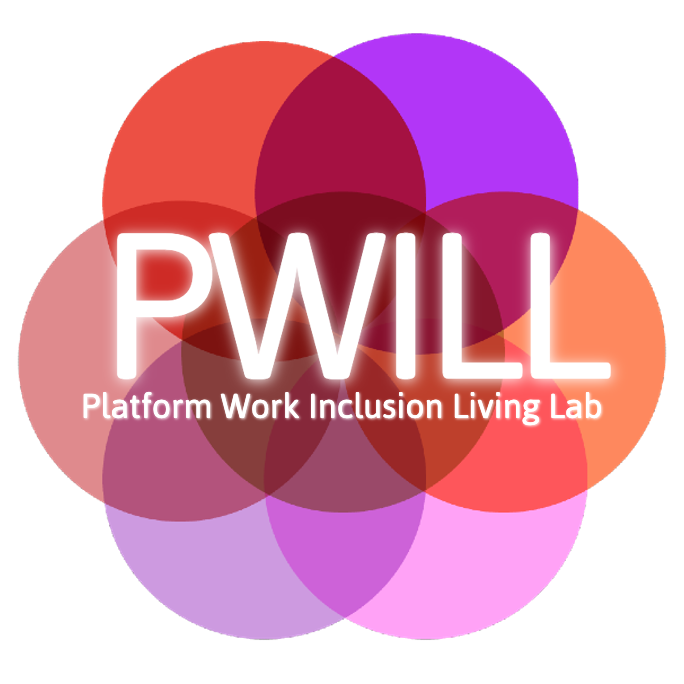Seminar funded by the COST Action Platform Work Inclusion Living Lab with the support of Fondazione Giangiacomo Feltrinelli and Horizon Europe INCA project.
Venue: Sala Della Peruta, Fondazione Giangiacomo Feltrinelli, Milan, Italy.
When: Friday 13 October 2023, from 9AM to 6PM
Concept
Rising at the crossroads between waged labour and self-employment, very often positioned in the labour law grey areas of the legislative systems of European countries, platform work is the subject of a deep and variegated debate with respect to the type of regulatory intervention to put in place in order to guarantee, at the same time, a development of the sector and the protection of workers.
While the awareness that regulatory intervention is necessary seems to have settled – both at academic and public policy level – there are still sharp differences as to how.
There is a renewed role of public institutions – from municipalities to states – in favouring collective bargaining between companies and platforms, as well as in defining regulations on different scales. Local experiments were followed by several legislative initiatives at national level (Italy, Spain). To these, the proposal for a European directive (2021) that is still under discussion must be added.
Alongside these initiatives, platform workers’ mobilisations continued in some sectors, in particular in the food delivery. In some cases, e.g., that of the Takeaway group, the trade unions signed collective agreements with the companies, settling the construction of a more stable system of industrial relations.
The effects and evaluations of these initiatives are manifold; in some cases, they have profoundly changed platform work, in other cases they have struggled to find effective implementation or have been strongly opposed by workers or companies.
The seminar will consider both policy initiatives (top-down) promoted by national and European institutions, and company agreements and demands (bottom-up) expressed by workers’ mobilisations.
Format
Participation is free but under registration by 9 October 2023. Fill the form at the following link: https://forms.gle/CNiT8igzyVCq52d58
Then you will receive an official email invitation by the COST Action P-WILL you will have to accept.
It will be possible to participate both online (Zoom) or in person.
The seminar will be organised around 4 sessions – 2 in the morning and 2 in the afternoon – concentrated in a single day.
The morning sessions will focus on legislative initiatives (top-down) promoted by national and European institutions, the afternoon session on company agreements and demands (bottom-up) expressed by workers’ mobilisations.
The contributions will address the following topics:
- Do legislative proposals have to be focused exclusively on platform work or work in general?
- Is it enough to define one European legislative initiative for all platform workers or do we need multiple laws tailored to the different categories of platform workers?
- How in force legislations affected platform work? Did they improve working conditions and social protections?
- Is the EU directive a promising solution? Which are its value and its potential risks?
- What strategies of resistance and mobilisation (formal and informal) can we identify in the context of platform work? Are they adequately supported by the existing legislation/practices?
- Which real life examples of resistance and mobilisation in platform work can we draw from?
- How decolonial and feminist perspectives may help to better understand workers’ claims and protests?
- Are industrial relations strong enough to self-regulate platform work? May we appoint some collective agreements as best practices?
Agenda
9:30-10:00 Welcome and introduction
Maurilio Pirone (University of Bologna)
10:00- 11:30 The path towards a EU Directive on platform work
Chair: Guido Smorto (University of Palermo)
- Class actors and dynamics influencing the EU Platform Work Directive
Ben Wray (Gig Economy Project)
- A feminist critique of the EU directive
Nelli Kambouri (National Hellenic Research Centre, online)
- The power of lobbying
Edoardo Mollona (University di Bologna)
11:30-12:00 Break
12:00-13:30 Innovating policies
Chair: Mattia Frapporti (University of Bologna)
- Right to disconnect
Kosjenka Dumančić (University of Zagreb)
- What law for domestic platform workers? Comparative study of France, Sweden, and European Union
Claire Marzo (University Paris Est)
- From Labor Law to a Law on Persons? Attempts to Regulate Tax Status of Online Labour Markets Workers in Serbia
Branka Andjelkovic, Tanja Jakobi, Maja Kovac (Public Policy Research Centre)
13:30-14:30 Lunch refreshment
14:30-16:00 How platforms are transforming labour and social reproduction
Chair: Niccolò Cuppini (SUPSI)
- Platforms and welfare
Ivana Pais (Catholic University of Milan)
- Platform work and piece wages. How piecework affects workers’ opinions on platform work regulation?
Laura Valle Gontijo (University of Brasilia)
- Platforms and social fabric
Olegario Batalla (Autonomous University of Puebla)
16:00-16:30 Break
16:30-18:00 Workers’ strategies
Chair: Maurilio Pirone (University of Bologna)
- Legislative initiatives in Greece and the EU, trade unions and workers’ actions
Maria Kyriakidou (American College of Thessaloniki)
- Strategies of Resistance and Mobilization in the Context of Platform Work
Isidora Milosevic, Anđelka Stojanović (University of Belgrade)
- The strike of the food couriers
Rose Marie Azzopardi (University of Malta)
- Social dialogue in the platform economy. The case of Slovenia
Maja Turnšek (University of Maribor)

